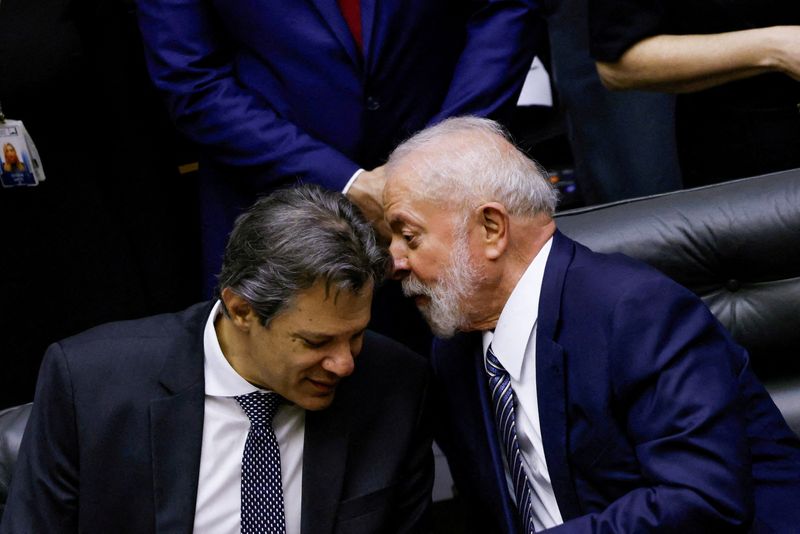Written by Marcella Ayers
BRASILIA (Reuters) – Brazil's government is expected to ease its fiscal targets for 2025, although it still aims to reach a surplus, two sources familiar with the matter told Reuters on Monday.
The government of leftist President Luiz Inácio Lula da Silva currently aims for a primary budget surplus of 0.5% of gross domestic product (GDP). Fiscal targets for next year must be set by April 15 as part of the budget guideline bill to be sent to Congress.
However, despite efforts to increase revenue, the government is struggling to stabilize rising public debt.
The first official, who spoke on condition of anonymity, said there was a “difference” between the public accounts' current projections for next year and the amount needed to achieve a primary budget surplus of 0.5% of GDP. “Significant revenue disparities exist.”
A second source said the adjustments would be made “within a balance towards positive territory” and the possibility of aggressive tax increases to pursue traditional goals that could have an impact on the economy. “This will remove the uncertainty associated with this,” he said.
Local newspaper Folha de São Paulo reported early on Monday that the government is considering lowering its primary balance surplus target to 0-0.25 percent of gross domestic product (GDP).
Finance Minister Fernando Haddad and other ministers will discuss the issue on Tuesday and Wednesday, and an announcement is likely next week, Haddad's deputy, Dario Durrigan, said at an event in Sao Paulo on Monday.
Haddad told reporters there was still uncertainty about fiscal targets for 2025, citing the impact of the parliamentary bill on public finances.
The Lula government paralleled these rules when it introduced a new fiscal framework that limits spending growth to 70% of revenue growth but allows expansions of a minimum of 0.6% and a maximum of 2.5% above inflation each year. It stipulated that growth in fiscal spending should continue to be pursued. Main budget goals.
This year, the government has set a target to eliminate the primary budget deficit, with a primary budget surplus of 0.5% of gross domestic product (GDP) in 2025 and 1% of gross domestic product (GDP) in 2026, within an acceptable range. suggested a quarter of a percentage point for either side.
Going forward, the budget guidelines bill will need to formalize the 2025 target and create new projections for the next two years.
Private economists surveyed weekly by the central bank predict this year's primary fiscal deficit will be 0.7% of gross domestic product (GDP), and 0.6% in 2025.
(Reporting by Marcela Ayers; Additional reporting by Fernando Cardoso in Sao Paulo and Victor Borges in Brasilia; Editing by Paul Simao and Stephen Coates)


